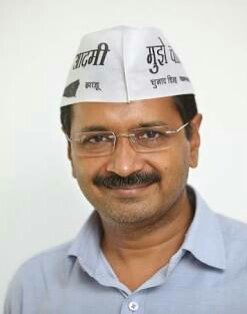This article is about a recent Supreme Court decision involving Arvind Kejriwal, the Chief Minister of Delhi, who was arrested in a case related to the Delhi excise (alcohol) policy. The Supreme Court granted him bail, but the two judges on the case had different opinions on whether his arrest by the Central Bureau of Investigation (CBI) was fair.
Arvind Kejriwal was arrested by the CBI in a case about the Delhi government’s alcohol policy. The Supreme Court gave him bail, but the two judges disagreed on whether his arrest was fair. One judge thought the CBI followed the right steps, while the other judge felt the timing of the arrest was suspicious and questioned why the CBI waited for 22 months to arrest him. This judge also criticized the CBI for potentially acting unfairly and reminded everyone that just because someone is arrested doesn’t mean they should be denied bail. He also pointed out that remaining silent during questioning is a right and not a reason to keep someone in jail.

Key Points of the Case:
- Granting of Bail: Arvind Kejriwal was arrested on corruption charges connected to the Delhi excise policy case. He had already received bail in a related case of money laundering. After co-accused people in the case, like Delhi’s Deputy Chief Minister Manish Sisodia and politician K. Kavitha, were also granted bail under a strict law (the Prevention of Money Laundering Act), it was expected that Kejriwal would be given bail soon, which eventually happened.
- Supreme Court Judges’ Agreement on Bail:
- Both judges, Justice Surya Kant and Justice Ujjal Bhuyan, agreed that Kejriwal should be released on bail and did not need to go back to a lower court, as the CBI had suggested.
- Bail is a legal process where an accused person is allowed to leave jail under certain conditions until their trial is over.
- Different Views on the Arrest:
- Justice Surya Kant believed that the CBI followed proper procedures in arresting Kejriwal. The CBI had first approached the trial court to get permission to question Kejriwal, and then later to arrest him. For Justice Kant, this meant that the CBI acted according to the rules.
- Justice Ujjal Bhuyan, however, questioned the timing of the arrest. He found it suspicious because the CBI had not arrested Kejriwal for 22 months, but then decided to do so just when Kejriwal was about to be released on bail in the money laundering case. Justice Bhuyan suggested that just because the CBI had the power to arrest Kejriwal, it didn’t mean they needed to arrest him at that exact time.
- Criticism of the CBI:
- Justice Bhuyan made a strong comment about the reputation of the CBI, hinting that the agency has often been accused of being controlled by political powers, like a “caged parrot” that only does what it’s told. He emphasized that the CBI should not behave in a biased or unfair way when investigating cases or making arrests.
- The judge also noted that just because someone, like Kejriwal, chooses to remain silent or doesn’t answer questions during an investigation, it doesn’t mean they should automatically be kept in jail. It’s a basic right of an accused person to remain silent during questioning.
- Reminder About Bail and Fair Treatment:
- Justice Bhuyan’s remarks serve as a reminder that bail should not be used as a punishment. If a person is arrested, they should not be denied bail unless there are strong reasons to keep them in jail.
- The article also criticizes the Delhi High Court for delaying Kejriwal’s bail by telling him to first ask the lower trial court for bail, which extended his time in jail. Justice Bhuyan felt that the High Court should have considered the merits of the case and granted bail earlier instead of prolonging the process unnecessarily.
.
.
.
.
.
join our telegram channel for regular updates of The Hindu Epaper Editorial Explanation-https://t.me/Thehindueditorialexplanation
The Hindu Epaper Editorial Explanation given by Hello Student is only a supplementary reading to the original article to make things easier for the students.
In conclusion, preparing for exams in India can be a daunting task, but with the right strategies and resources, success is within reach. Remember, consistent study habits, effective time management, and a positive mindset are key to overcoming any academic challenge. Utilize the tips and techniques shared in this post to enhance your preparation and boost your confidence. Stay focused, stay motivated, and don’t forget to take care of your well-being. With dedication and perseverance, you can achieve your academic goals and pave the way for a bright future. Good luck!
The Editorial Page of The Hindu is an essential reading for all the students aspiring for UPSC, SSC, PCS, Judiciary etc or any other competitive government exams.
This may also be useful for exams like CUET UG and CUET PG, GATE, GMAT, GRE AND CAT
To read this article in Hindi –https://bhaarat.hellostudent.co.in/

